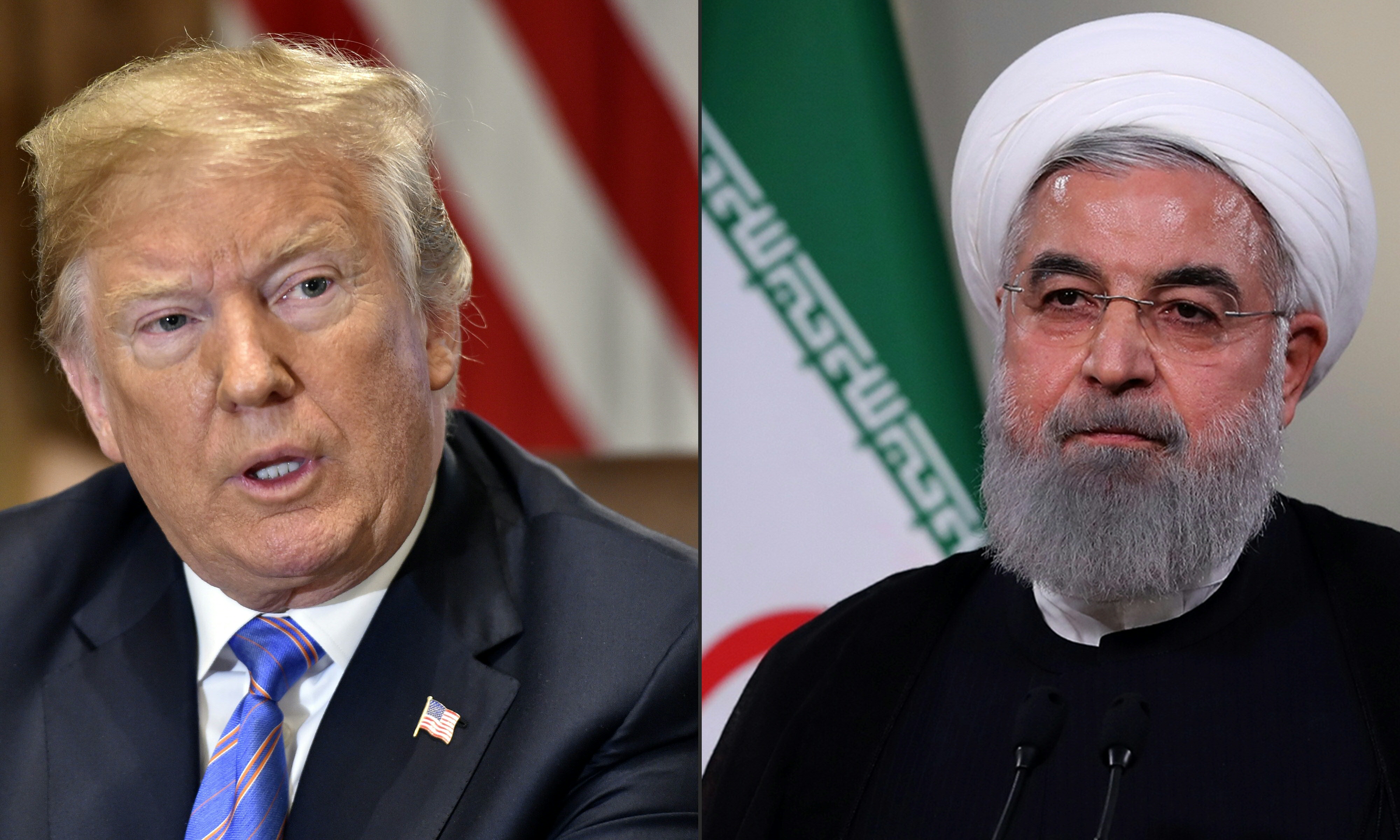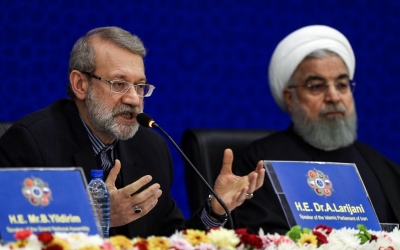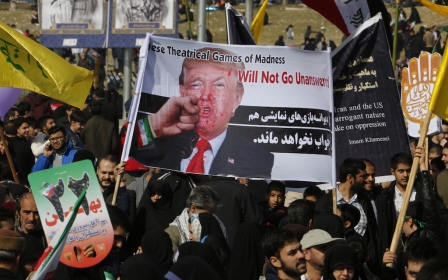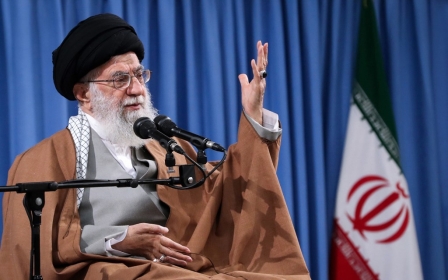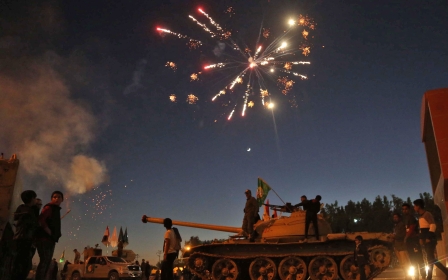The shadow war: Netanyahu’s blunders on Iran will cost him dear
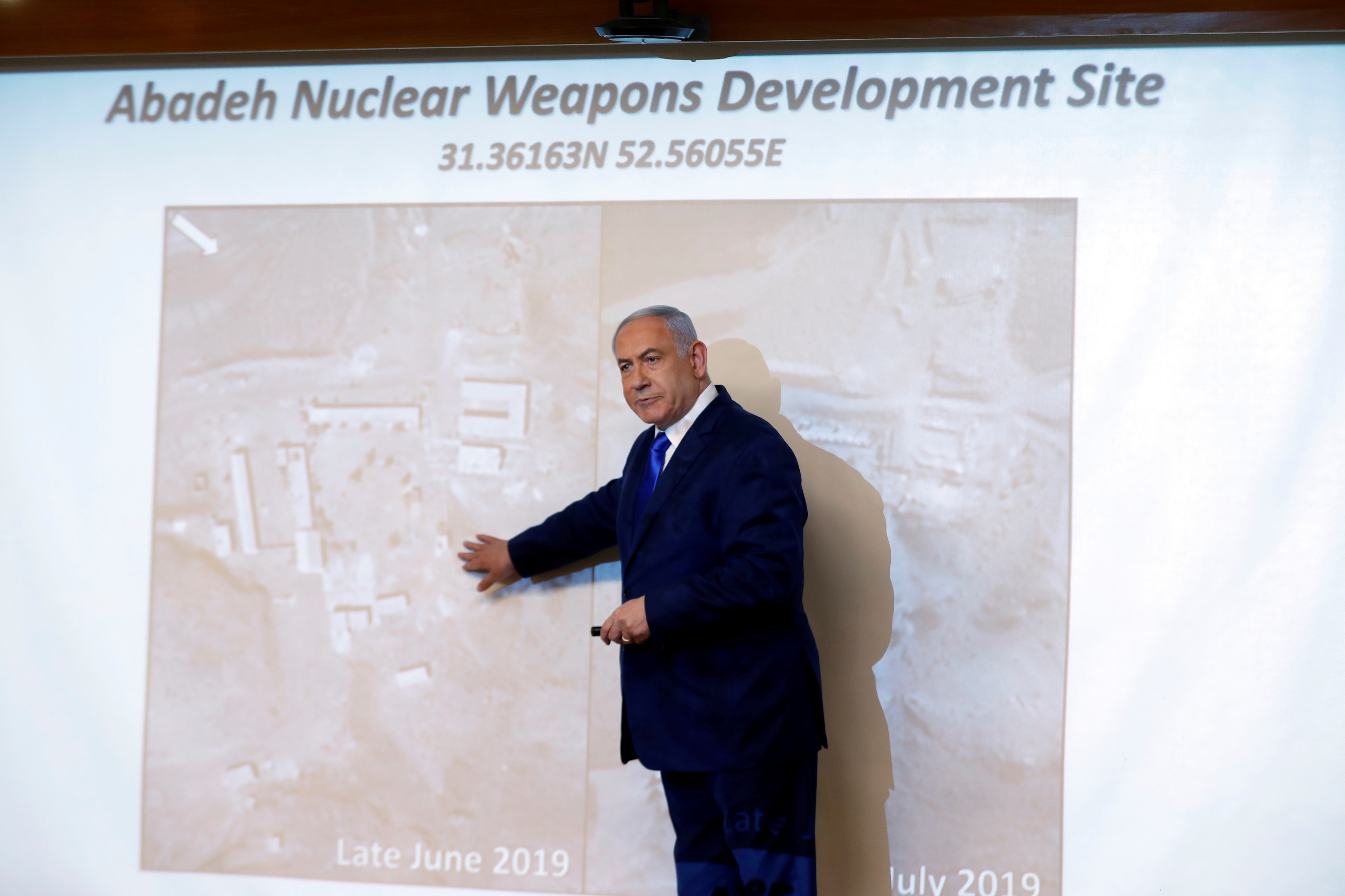
On the eve of Israel’s hotly-contested 17 September election, embattled Prime Minister Benjamin Netanyahu, fearing defeat, has resorted to his old playbook of tapping into Iran fear-mongering through a litany of provocative strikes against Iran and its allies across the Middle East, setting in motion a new and highly dangerous chapter in the so-called “shadow war”.
The news on Tuesday about the firing of John Bolton, Trump's national security adviser and a staunch advocate of regime change in Tehran, can only limit Israeli leverage in Washington and tone down the hostility toward Iran in Washington.
Netanyahu has simultaneously upped the ante against Iran’s nuclear programme, making new allegations of secret Iranian nuclear weapons activities.
The latter, coinciding with a Tehran visit by the acting director general of the International Atomic Energy Agency (IAEA), represents a fresh attempt to undermine the 2015 Iran nuclear accord and re-subject Iran to international sanctions. Netanyahu is now cherishing the news that the IAEA is demanding answers from Iran about traces of enriched uranium found at a warehouse raided by his operatives.
A new nuclear crisis
New MEE newsletter: Jerusalem Dispatch
Sign up to get the latest insights and analysis on Israel-Palestine, alongside Turkey Unpacked and other MEE newsletters
If all goes according to Netanyahu’s plans, the IAEA would find Iran in breach of its obligations and report it to the UN Security Council, which could decide to reinstate certain resolutions in light of Iran’s fateful decision to curtail its compliance with the nuclear deal.
Thus, the stage is set for a new Iran nuclear crisis and all the associated tensions, threats and counter-threats - including the risk of a US or Israeli military strike on Iran’s nuclear facilities. But given Iran’s formidable deterrence capabilities, such strikes, even if limited in nature, could spark a wider conflict that in all likelihood would entail Hezbollah’s involvement as an extension of Iranian power.
By all accounts, Netanyahu has not only failed to convince Europe to exit the nuclear deal, but he is also in danger of losing Trump
Lest we forget, the 34-day war between Israel and Lebanon’s Hezbollah in 2006 is widely regarded as the incipient phase in the ongoing Iran-Israel shadow war, which has resulted in hundreds of Israeli air strikes on Iranian military assets in Syria, along with recent attacks on the pro-Iran Popular Mobilisation Units in Iraq, which risked retaliation against US forces in Iraq.
From Iran’s vantage point, its proxy forces in Syria, Lebanon, Iraq and Yemen play a crucial role in its military doctrine, as deterrent shields that raise the costs for Iran’s adversaries plotting action against Tehran.
Iran blames Israel for lobbying Washington to scuttle the nuclear deal and impose crushing economic sanctions under the guise of a “maximum pressure” campaign. Israel’s range of anti-Iran activities include sabotage, cyber-warfare, and the assassination of nuclear scientists - not to mention its growing anti-Iran alliance with the Saudi-led bloc in the Gulf.
Geopolitical shift
Yet, in the absence of any attempt by Israel to rectify its systematic denial of Palestinian rights, it will be difficult to cement such an alliance. The Palestinian issue is fundamental to Arab leaders, who know that strong pro-Palestinian popular sentiments could be turned against them if they move too close to Israel.
A Tehran-based political scientist told me on condition of anonymity that Israel’s current campaign against Iran follows two objectives: “First to gain in the electoral race by showing Israel’s military prowess, and second, to sabotage the upcoming dialogue between Tehran and Washington.”
Although it remains unclear whether US President Donald Trump and Iranian President Hassan Rouhani will meet in New York later this month, the willingness of Trump to explore diplomacy with Iran has rattled Netanyahu, who has insisted that this is not the time for negotiations with Iran, but for sustained pressure.
By all accounts, Netanyahu has not only failed to convince Europe to exit the nuclear deal, but he is also in danger of losing Trump.
Will Israel reconsider its Iranophobic approach and make the necessary adjustments, in tune with changing geopolitical equations?
To answer this question, it is important to bear in mind that many leading political, military and intelligence officials in Israel see the Iran nuclear deal as beneficial to Israel’s national security, and have warned the US against scuttling it. As professor Juan Cole noted in a recent article, Netanyahu’s miscalculations about Iran will likely cost him dearly.
Atrocious missteps
Netanyahu’s Iranophobia has brought less - not more - security to Israel, which is viewed by Iran and its allies as the real culprit behind the current US confrontational campaign.
It has also potentially led to a self-fulfilling prophecy with respect to Iran’s nuclear programme, as more and more voices within the country favour a nuclear deterrent shield for a country under siege.
As a result, Iran may forego its religious antipathy towards nuclear weapons, reflected in an edict by the Supreme Leader banning the manufacturing of nuclear bombs - particularly since the gradual unravelling of the nuclear deal has come alongside a new Saudi quest for nuclear capabilities.
This highlights another major flaw in Netanyahu’s one-dimensional anti-Iran strategy: the failure to anticipate unwanted consequences of derailing the nuclear accord, which was in healthy standing until Trump’s unilateral exit last year.
Sadly, irrespective of Netanyahu’s atrocious missteps, he continues to garner domestic benefits from this strategy, although a more informed debate inside Israel on the negative ramifications could tip the balance in favour of those harbouring alternative visions for how to ensure Israel’s security.
Meanwhile, the destructive path of a deliberate “shadow war” is increasingly casting a large cloud over Israel’s future.
The views expressed in this article belong to the author and do not necessarily reflect the editorial policy of Middle East Eye.
This article is available in French on Middle East Eye French edition.
Middle East Eye delivers independent and unrivalled coverage and analysis of the Middle East, North Africa and beyond. To learn more about republishing this content and the associated fees, please fill out this form. More about MEE can be found here.



